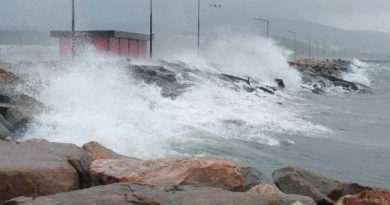Will China build Turkey’s third nuclear plant as expressed by some officials close to administration?

Turkey, which is shifting its focus from traditional energy sources to renewable energy sources, is planning and taking significant steps in this direction. For example, the nuclear power plant currently under construction in Akkuyu is one of the important steps taken to address the energy problem. It is also known that officials have plans for the construction of additional nuclear power plants.
On Thursday, a Turkish energy official announced that Turkey was close to finalizing a deal with China for the construction of a new nuclear power plant, marking a significant development in Turkey’s nuclear energy plans and its relations with China.
Nuclear power is known to hold a crucial place in Turkey’s energy strategy. Currently, Russian energy giant Rosatom is constructing Turkey’s first nuclear power plant, Akkuyu, located in the southern province of Mersin.
The potential project with China would likely become Turkey’s third nuclear power plant. Concerned Minister mentioned that South Korean companies and Rosatom had also expressed interest in building a second nuclear plant, to be situated on the Black Sea, as reported on int’l media. In fact, back in July, the Energy Minister had indicated that Ankara was in discussions with China, Russia, and South Korea regarding the construction of Turkey’s second and third nuclear power plants.
Turkey’s energy mix consists of various sources. In 2021, gas accounted for 33% of its total power generation, closely followed by coal at 32%, hydropower at 17%, and non-hydro renewable energy at 18%, according to a report by related sources.
Particularly in recent years, Turkey’s reliance on coal has sparked controversy and protests. In July, protesters gathered in the Akbelen forest in southwestern Turkey to oppose the deforestation for a coal mine and the resulting air pollution.
On the other hand, in parallel to its plans for the future Turkey unveiled a national energy plan in January, outlining its efforts to increase the use of renewable energy sources. These recent developments in Turkey’s energy sector seem to be part of improving relations between China and Turkey. In fact, Chinese Foreign Minister Wang Yi visited Ankara in late July to discuss economic ties and other subjects with President Recep Tayyip Erdogan.
On the other hand another very important issue to disturb Turkey to the maximum has to do with the India-Middle East-Europe Economic Corridor, a planned rail and shipping project aimed at enhancing economic integration between Asia, the Gulf, and Europe.
It’s worth noting Turkey’s opposition to the India-Middle East-Europe Economic Corridor, a planned rail and shipping project aimed at enhancing economic integration between Asia, the Gulf, and Europe. Apparently, The United States, European Union, France, Germany, Italy, Saudi Arabia, and the United Arab Emirates signed a memorandum of understanding on the corridor during the G20 summit bypassing Turkey. Erdogan criticized the corridor, emphasizing that “there is no corridor without Turkey,” as reported by multiple sources.
On another front, Turkey has historically had somewhat cool relations with China due to Turkey’s support for the Muslim Uyghur population in Xinjiang province, where China has faced allegations of persecution. While many countries in the region have remained silent on this issue, Turkey has been the primary public supporter of Muslim Uyghurs in the Middle East.





